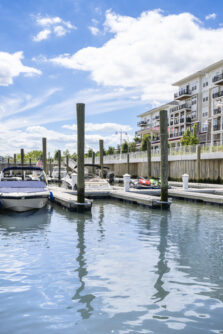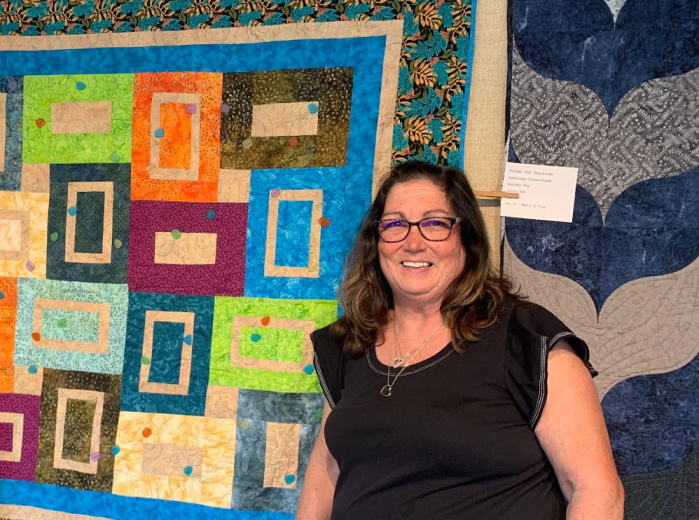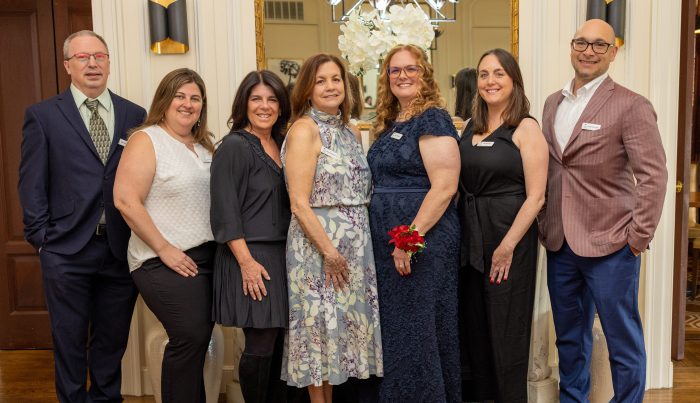BY BEN FIEBERT AND HANNAH DEVLIN
Glen Cove Mayor Pamela Panzenbeck removed a vote from June’s city council meeting to start negotiations with the New York Water Taxi.
In 2003, the City of Glen Cove was approved for a $16.6 million grant to construct a high-speed ferry system from Glen Cove’s Garvies Point to Manhattan’s financial district.
In 2015, Glen Cove built the ferry terminal using the grant money. The funds would need to be repaid if the city didn’t run commuter services to Manhattan for at least two years. Now, nine years later, the commuter services have yet to start.
At the June 25 City Council meeting, Panzenbeck removed a vote that, if approved, would have begun a two-month ferry pilot program in the fall.
Panzenbeck said the city hadn’t received a commitment letter from RXR, owner of the 27 acres of land in Garvies Point, since 2016 that they would provide some of the nearly $1 million in funding it previously committed to subsidize over the two years. Panzenbeck said RXR expects the city to incur losses from the pilot program to get the funding.
“We had agreed, in our continuing covenant agreement, that we would make a subsidy for the ferry of $1 million,” Joe Graziose, EVP of residential development and construction, said.
Of that $1 million, Graziose said RXR gave the city $120,000 for “consultants to assist them in looking at ferry operators and things of that nature.”
Graziose said the city launched a ferry pilot program a few years ago. He said that the vessels did not reach capacity during this program.
“There were two vessels that left every day and went to one to 34th Street and one to Wall Street,” Graziose said. “There were 50 people one day, 100 one day, 75 people one day. And these vessels usually take just under 200 people.”
Graziose said the city recently asked RXR for $250,000 to run the ferry in September and October.
“In a best-case scenario, which would be 149 people daily, one trip a day… I think it was about a $35 ticket price” Graziose said. “The ferry would lose roughly $30,000 over the two months.”
“We had said, ‘we are happy… we would love to work with you on a sustainable plan,’” Graziose said. “‘We’re not going to give you this $250,000.’”
Graziose said that, according to their legal agreement, RXR does not have to give the city funds for the project until the city has exceeded its grant funding. He said the city has not reached this point, so RXR is not required to provide the $250,000.
“Our controller has determined that the city would incur an approximately $26,000 loss over the two-month pilot, even if the boat is 100% full,” Panzenbeck said at the board meeting. “Until the matter of the RXR contractual obligation to the ferry subsidy is resolved to my satisfaction, I cannot, in good faith, bring this manner to a vote tonight.”
Larry Penner, a former director of the New York Office of Operations and Program Management at Federal Transit Administration Region 2, said the ferry’s inactive use qualifies as waste, fraud, and abuse of taxpayers’ money.
“Surely, based on my experience, on or before 2010, the ferry service should have been transit service,” Penner said. “Something 14 years behind schedule is unheard of.”
Penner said Glen Cove should have been updating federal agencies with quarterly milestones and budget schedules to stay on track. According to the grant agreement, if the federal agency does not get what it paid for, the city is legally required to pay it back.
“We are not running away from the obligations,” Graziose said.
Graziose said he is in talks with the city about moving forward.

































